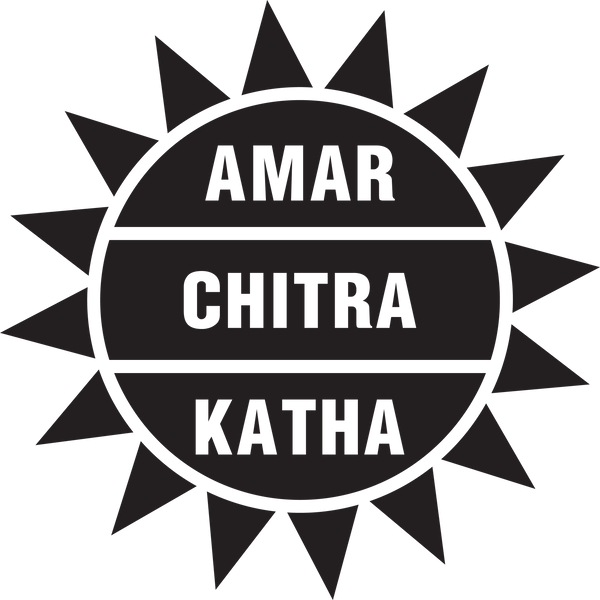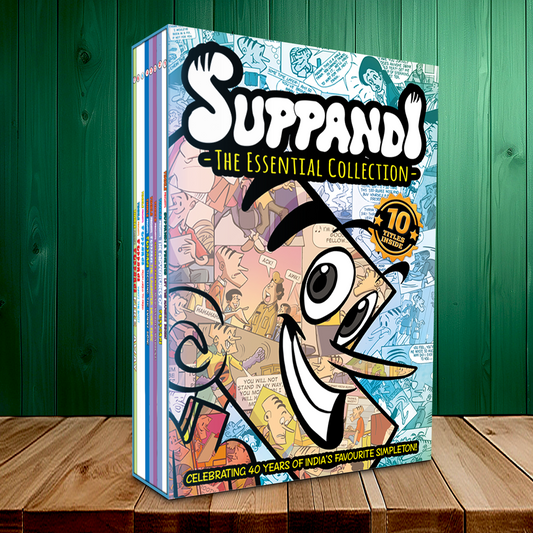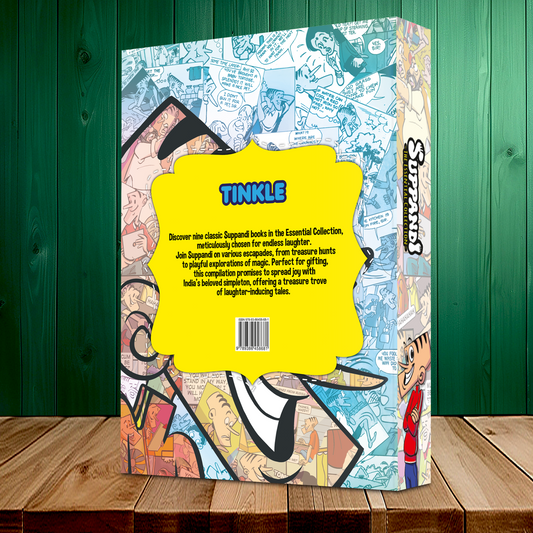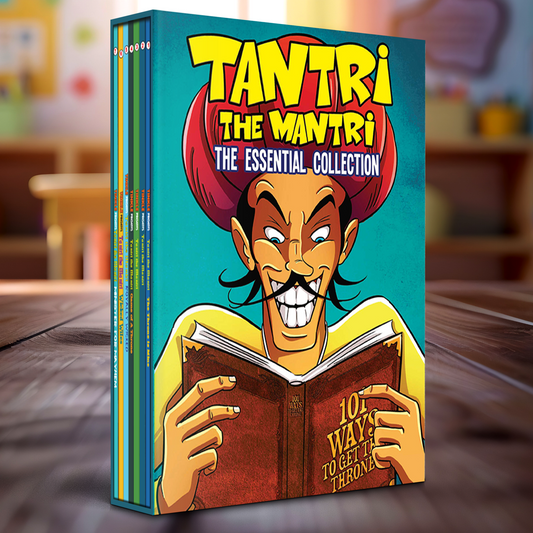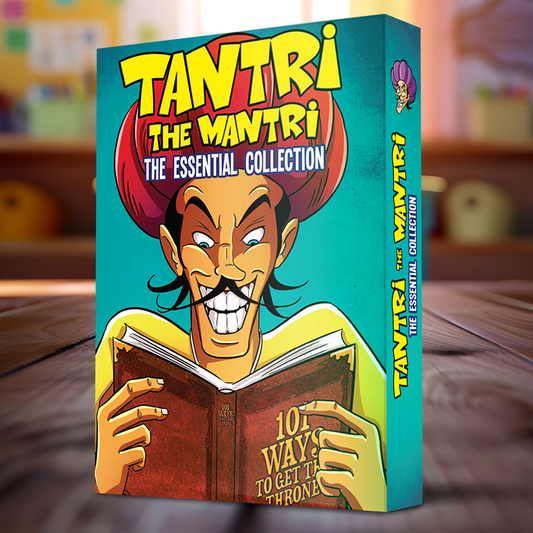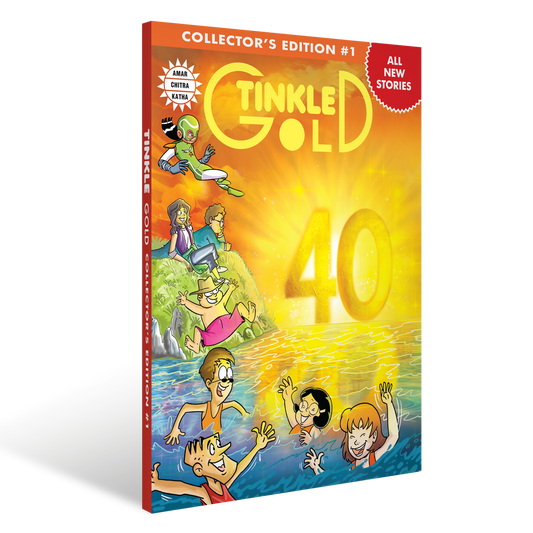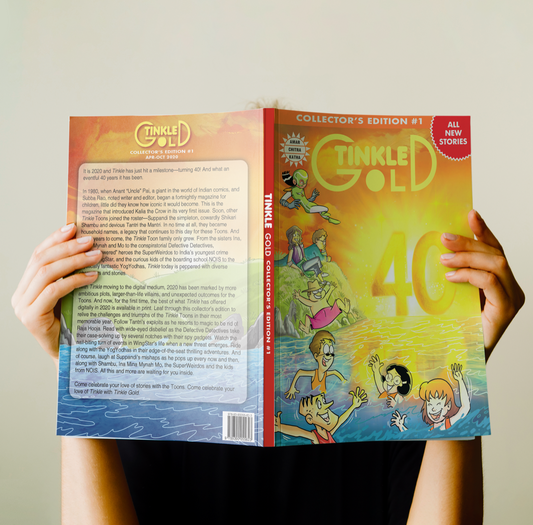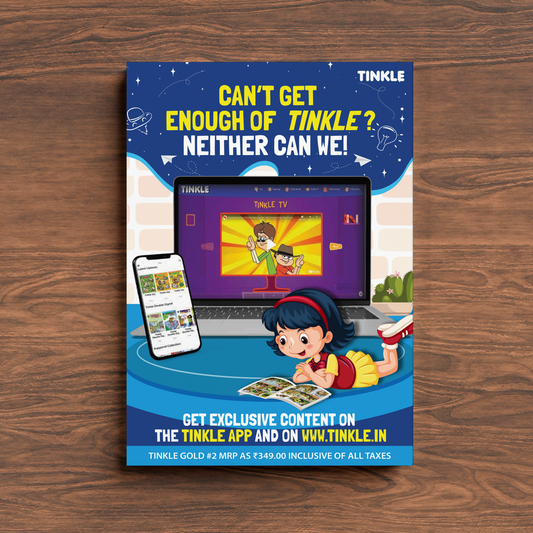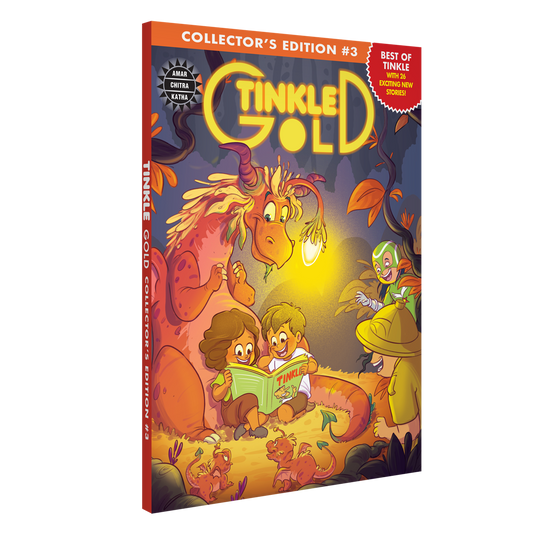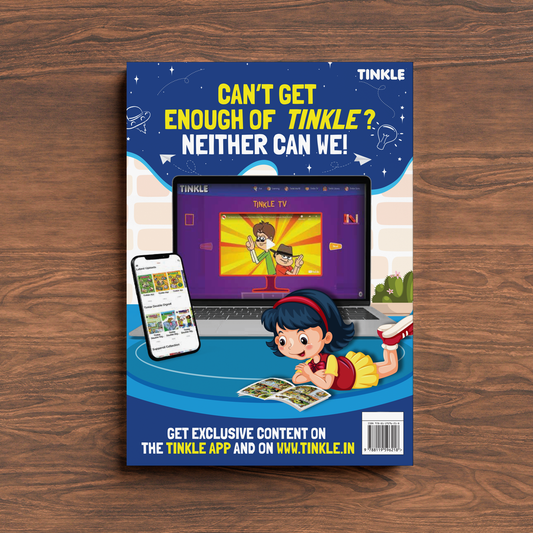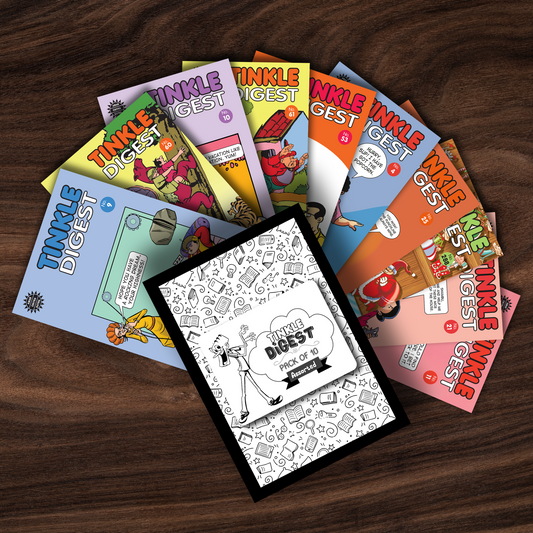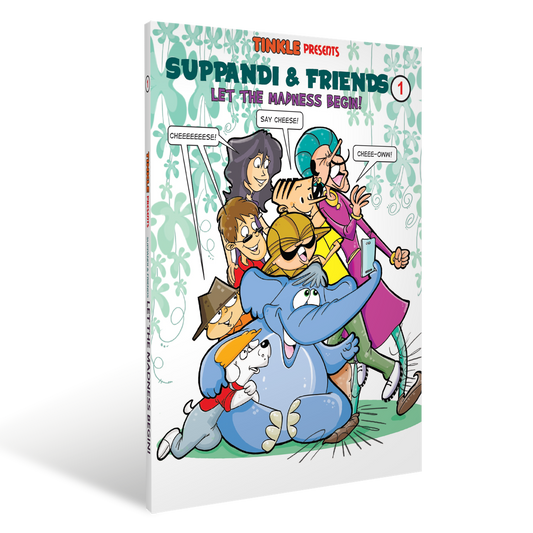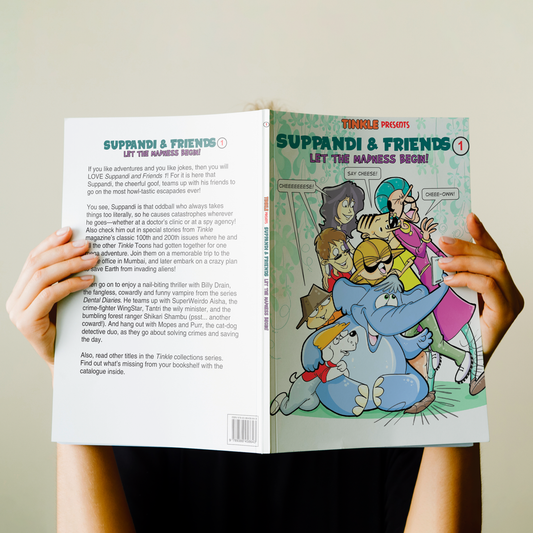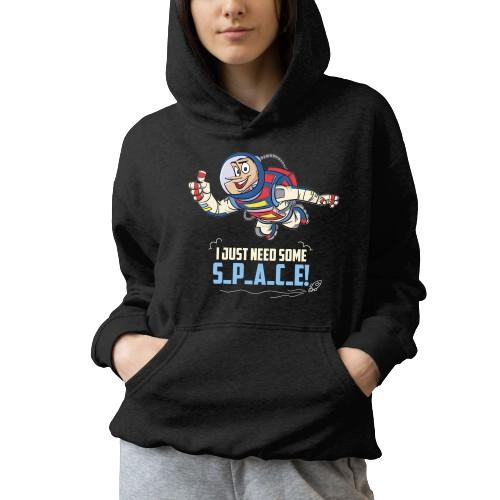Tinkle
Hurry: Extra 30% off with code: FESTIVE30
-
Suppandi: Essential Collection
EXTRA 30% OFFRegular price $52.99Sale price $52.99Unit price / perSale -
Shambu: Essential Collection
EXTRA 30% OFFRegular price $49.99Sale price $49.99Unit price / perSale -
Tantri the Mantri: Essential Collection
EXTRA 30% OFFRegular price $44.99Sale price $44.99Unit price / perSale -
Tinkle Double Digest: Pack of 24
EXTRA 30% OFFRegular price $99.99Sale price $99.99Unit price / perSale -
Tinkle Gold: Collector's Edition #1
EXTRA 30% OFFRegular price $24.99Sale price $24.99Unit price / perSale -
Tinkle Gold: Collector's Edition #2
EXTRA 30% OFFRegular price $24.99Sale price $24.99Unit price / perSale -
Tinkle Gold - Collector's Edition #3
EXTRA 30% OFFRegular price $24.99Sale price $24.99Unit price / perSale -
Tinkle Mega Collection: 300 Stories
EXTRA 30% OFFRegular price $189.99Sale price $189.99Unit price / perSale -
Tinkle Digest: Pack of 10
EXTRA 30% OFFRegular price $49.99Sale price $49.99Unit price / perSale -
Suppandi And Friends Vol. 1
EXTRA 30% OFFRegular price $9.99Sale price $9.99Unit price / perSale -
Tinkle Holiday Special - 53
EXTRA 30% OFFRegular price $12.99Sale price $12.99Unit price / perSale -
Bad Manners - Hoodie
EXTRA 30% OFFRegular price $29.99Sale price $29.99Unit price / perSale -
Bhaiya ji Smile - Tee
EXTRA 30% OFFRegular price $28.49Sale price $28.49Unit price / perSale -
I just need some space - Hoodie
EXTRA 30% OFFRegular price $29.99Sale price $29.99Unit price / perSale -
Multitasking - Hoodie
EXTRA 30% OFFRegular price $29.99Sale price $29.99Unit price / perSale -
Vacation Mode - Tee
EXTRA 30% OFFRegular price $28.49Sale price $28.49Unit price / perSale
